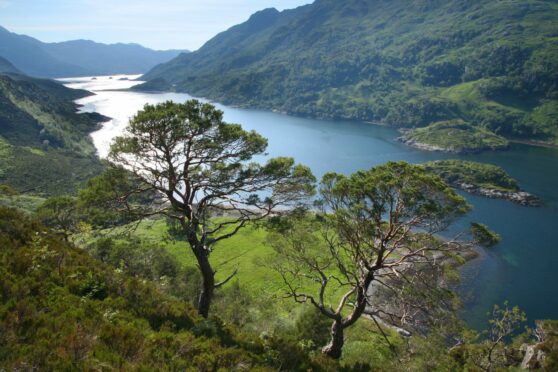Mowi Scotland wanted to increase fish stocks and change the pens at its fish farm on Loch Hourn.
However, their plans attracted 159 public objections and various concerns from national environment agencies.
Highland Council planners felt the difficulties could be overcome by imposing a range of safeguards at the fish farm, but members of the north planning committee disagreed.
Councillor Richard Gale tabled a motion to refuse planning permission, and won the vote.
Proposed biomass increase
The existing fish farm operates from the southern shore of Loch Hourn, and falls within the Knoydart National Scenic Area. The farm has operated there for years, but some in the community felt the extension would endanger marine life.
Currently, the Highland fish farm runs twelve circular pens of 100 metre circumference. These are arranged in one group of eight pens, and one group of four. Under the new planning application, Mowi Scotland wanted to reduce to eight pens, arranged in one row, with a circumference of 160 metres each.
This change would have needed a larger sea-bed mooring area, though it was still within the boundary of the consented wind farm.
Mowi Scotland also wanted to farm more fish. In its original application, it sought a 24% increase on biomass. However, they settled on 2750 tonnes – a 10% increase – on advice from SEPA.
Controversial application
The fish farm application prompted a lengthy debate in the Highland Council chamber, echoing the various comments of the local community.
The public consultation attracted 159 objections and 56 supporting comments.
People voiced concern that the expanded operation would increase sea lice, waste feed and faeces in the loch. They also feared it would have a negative impact on protected marine life and wild shellfish including mussels and oysters.
However, supporters pointed to the fish farm’s strong environmental record, which meets RSPCA standards. They also highlighted that the farm supports nine local jobs and diversifies the tourism-led economy.
Glenelg and Arnisdale community council chose not to object, stating that they could see both sides of the argument in what they called a “locally controversial issue”.
The official planning report from Highland Council cautioned that many of the comments – both for and against – were about the fish farm generally. Councillors needed to assess only the additional impact of the increased biomass and amended layout.
Councillors not satisfied with environment plan
Several councillors expressed concern about the potential environmental impact on a protected area. Councillor Richard Gale led the charge, saying he was concerned the changes would harm marine life.
Mr Gale tabled a motion to refuse the planning application, stating that the proposed environment management plan wasn’t satisfactory.
Newly-elected chairman Drew Millar moved an amendment to agree planning consent.
Mr Gale’s motion won, and the fish farm application was refused.
Speaking after the meeting, Mr Gale commented:
“I feel that we have a duty to protect the natural environment and the various species that exist in the area.
“I didn’t feel that there was enough reassurance from this particular application to confirm that we could guarantee that level of protection.”
Are you interested in more exclusive and breaking Highland and Islands news from the P&J? If so, why not join our dedicated Facebook page HERE


Conversation